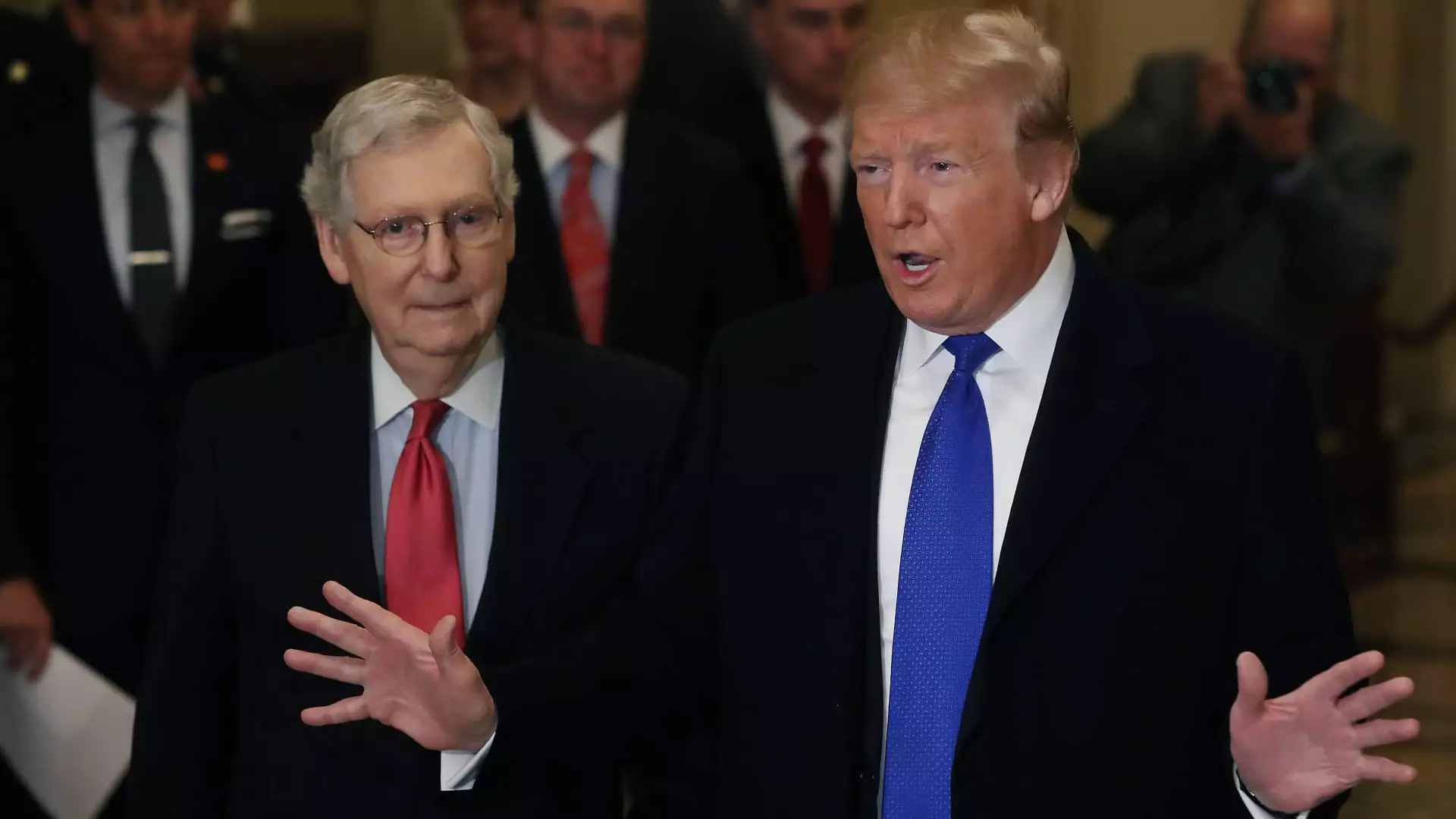The discussion around trade policies and tariffs has gained significant attention in recent years, particularly during President Donald Trump’s administration. Central to this conversation are the implications of imposing tariffs on U.S. economic partners, which can lead to a cascade of unintended consequences affecting American consumers and industries alike. Recently, Republican Senator Mitch McConnell publicly raised concerns about Trump’s tariff strategies, emphasizing that such aggressive economic measures can disrupt the delicate balance of U.S. trade relations.
Senator McConnell’s dissent against the president’s tariff initiatives underscores a growing anxiety among lawmakers regarding trade wars. By unilaterally implementing broad import duties on countries like Canada, Mexico, and China, the Trump administration risks initiating a spiral of retaliation that could lead to increased consumer prices. This scenario evokes fear among families who could bear the brunt of rising costs for basic goods, amplifying economic strain in households already grappling with financial uncertainties.
McConnell’s op-ed serves as a rare moment where a senior Republican openly critiques the economic strategies devised by the administration. His assessment highlights the lack of alignment between protective policies and the interests of American workers, particularly those reliant on international trade. This breach in unity amongst Republican leadership raises questions about the future of party cohesion in relation to economic governance.
Drawing from his own state of Kentucky, McConnell points out specific local industries that would be adversely impacted by blanket tariffs. The Kentucky agricultural sector, which relies heavily on exporting products, employs a significant number of individuals whose livelihoods could be jeopardized by such policies. The potential fallout from tariffs particularly threatens the state’s robust auto industry, which is intricately linked to global supply chains. These sectors not only contribute to Kentucky’s economy but also provide essential jobs, underscoring the real human costs of protectionist policies.
Moreover, the bourbon industry, symbolic of Kentucky’s cultural heritage and economic prowess, is at risk due to international trade constraints. In 2023, Kentucky distillers produced an overwhelming majority of the world’s bourbon, with exports valued at hundreds of millions of dollars. The potential for increased tariffs to drive up production and export costs could stifle this lucrative market, further emphasizing the need for a balanced approach to trade.
In light of McConnell’s warnings, it becomes imperative for lawmakers to reassess the effectiveness of tariffs. While the stated goal of protecting domestic industries is commendable, the reality is that indiscriminate tariffs often lead to more harm than good. As Senator McConnell eloquently stated, “tariffs are bad policy,” and finding a middle ground that fosters international cooperation while shielding American interests is crucial for long-term economic stability.
The ongoing tug-of-war between President Trump’s vision of aggressive trade policies and the concerns voiced by seasoned leaders like McConnell highlights an important ongoing debate within the Republican Party and American politics at large. Navigating this terrain will require introspection, compromise, and a commitment to policies that genuinely benefit the American people, rather than those that merely serve short-term political ambitions. A thoughtful reevaluation of trade strategies could pave the way for a more sustainable economic future.

